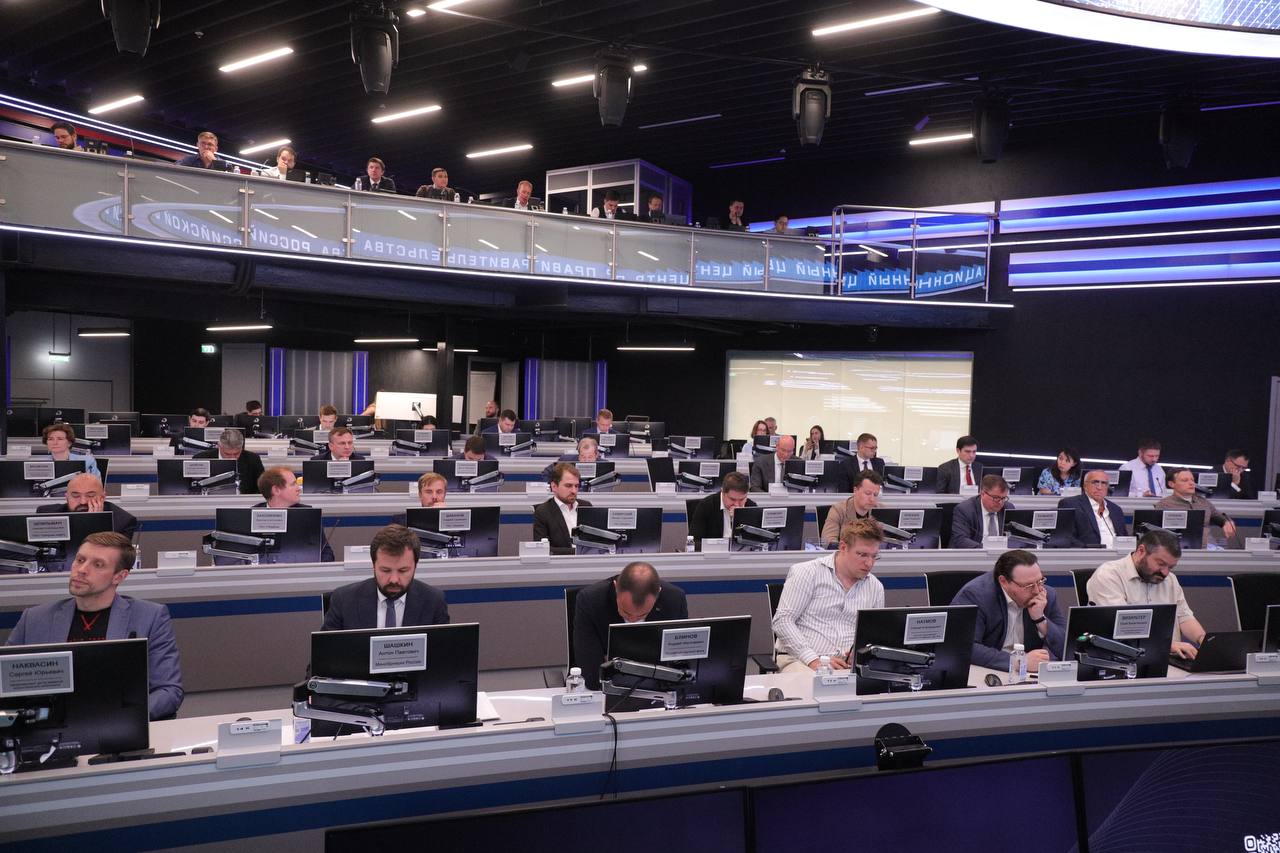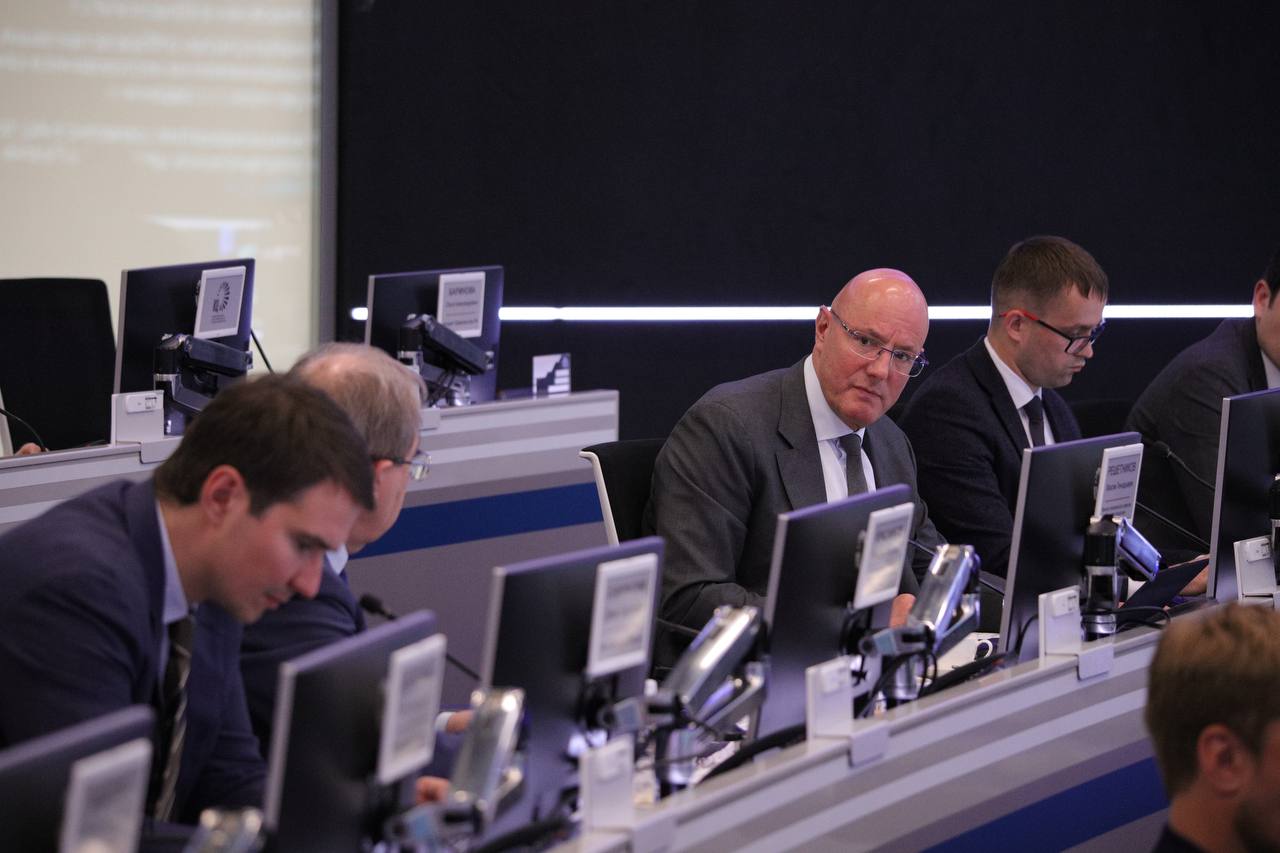HSE University and Sber Conduct Foresight in Artificial Intelligence

HSE University, in collaboration with Sber, have conducted a foresight study on artificial intelligence (AI). Its early results were discussed by the participants of a strategic foresight session on exploratory research in AI, held at the Coordination Centre of the Russian Government, headed by Deputy Prime Minister Dmitry Chernyshenko. The results from the foresight study will inform the Unified Research and Development Programme in the Field of AI.
Foresight refers to large-scale studies designed to identify promising areas for the development of science and technology that can impact the economy and society in the medium and long term. Foresight focuses not only on evaluating potential scenarios for science and technology development but also on selecting the preferable ones by involving key stakeholders and leading scientists from various scientific schools to build a coordinated position. Expert assessments (qualitative methods) form the basis for evaluating future options, while quantitative methods and big data analysis are also among the foresight techniques. AI foresight is a type of industry-level foresight. In addition, the HSE Institute for Statistical Studies and Economics of Knowledge (ISSEK) conducts foresight studies at the national, international, and corporate levels.
Work on AI foresight started in February 2024, almost simultaneously with the approval of the updated National AI Development Strategy for the period until 2030. More than 50 of the most esteemed experts in the field, representing business and government, participated in the study. Addressing the Coordination Centre's session, Mikhail Skvirsky, Managing Director at Sberbank PJSC, and Leonid Gokhberg, First Vice Rector and Director of ISSEK at HSE University, shared the objectives and progress of the foresight study.
HSE University was tasked with providing the foresight methodology. The study design was determined, in particular, based on key features of the AI field, such as its high dynamism and rapid implementation of scientific results into new products and services, Professor Gokhberg explained.
The task of identifying promising research areas in the field of AI was accomplished within an extremely short timeframe, spanning from February to May. During this period, the foresight organisers conducted an analysis of global trends and markets, scientific frontiers, and growth points, and also a series of surveys, expert interviews, and foresight sessions which involved leading Russian researchers in the field of AI.

The foresight analysis resulted in a three-level classification describing exploratory research in the field of AI. This classification includes ten key areas (such as fundamental and generative models, machine learning architectures and algorithms, security, trust, and explainability of AI), along with 37 subareas and 127 research tasks.

Maxim Kolesnikov
The results from the foresight analysis will form the foundation of the Unified Research and Development Programme in the Field of AI, according to Deputy Minister of Economic Development of the Russian Federation Maxim Kolesnikov. Additionally, it was decided to recommend the Russian Academy of Sciences (represented at the session by its President Gennady Krasnikov) to use the obtained results, starting from 2025, in the selection of exploratory research and examination of incoming research applications.
Maxim Kolesnikov also highlighted that support for flagship research centres in the field of AI, selected within the framework of the first wave, will end in 2024, and to ensure seamless financing of research in this area, new centres (of the third wave) will soon be selected. He emphasised that this would indeed entail 'a new selection, rather than an automatic extension of support for existing centres.'
The primary parameters of the new selection include conducting basic research on priority topics aligned with the results of foresight, implementing applied research commissioned by industry partners, and facilitating the training of scientific specialists.

Dmitry Chernyshenko
'Artificial intelligence has become the driving force behind industries aimed to ensure the development of the supply-side economy. Simultaneously, with the emergence of large language models, our focus is increasingly on supporting basic science. Specifically, we have established AI research centres and have started using them to train scientists who will specialise in adapting generative AI to meet the requirements from various industries. This collaboration will enable us to attain technological leadership while enhancing the quality of people's lives, generating new employment opportunities, and bolstering the competitiveness of the economy.'
See also:
‘HSE’s Industry Ties Are Invaluable’
Pan Zhengwu has spent the last seven years at HSE University—first as a student of the Bachelor’s in Software Engineering and now in the Master’s in System and Software Engineering at the Faculty of Computer Science. In addition to his busy academic schedule, he works as a mobile software engineer at Yandex and is an avid urban photographer. In his interview with the HSE News Service, Zhengwu talks about the challenges he faced when he first moved to Russia, shares his thoughts on ‘collaborating’ with AI, and reveals one of his top spots for taking photos in Moscow.
Scientists Present New Solution to Imbalanced Learning Problem
Specialists at the HSE Faculty of Computer Science and Sber AI Lab have developed a geometric oversampling technique known as Simplicial SMOTE. Tests on various datasets have shown that it significantly improves classification performance. This technique is particularly valuable in scenarios where rare cases are crucial, such as fraud detection or the diagnosis of rare diseases. The study's results are available on ArXiv.org, an open-access archive, and will be presented at the International Conference on Knowledge Discovery and Data Mining (KDD) in summer 2025 in Toronto, Canada.
Megascience, AI, and Supercomputers: HSE Expands Cooperation with JINR
Experts in computer technology from HSE University and the Joint Institute for Nuclear Research (JINR) discussed collaboration and joint projects at a meeting held at the Meshcheryakov Laboratory of Information Technologies (MLIT). HSE University was represented by Lev Shchur, Head of the Laboratory for Computational Physics at the HSE Tikhonov Moscow Institute of Electronics and Mathematics (HSE MIEM), as well as Denis Derkach and Fedor Ratnikov from the Laboratory of Methods for Big Data Analysis at the HSE Faculty of Computer Science.
AI vs AI: Scientists Develop Neural Networks to Detect Generated Text Insertions
A research team, including Alexander Shirnin from HSE University, has developed two models designed to detect AI-generated insertions in scientific texts. The AIpom system integrates two types of models: a decoder and an encoder. The Papilusion system is designed to detect modifications through synonyms and summarisation by neural networks, using one type of models: encoders. In the future, these models will assist in verifying the originality and credibility of scientific publications. Articles describing the Papilusion and AIpom systems have been published in the ACL Anthology Digital Archive.
HSE Researchers Develop Python Library for Analysing Eye Movements
A research team at HSE University has developed EyeFeatures, a Python library for analysing and modelling eye movement data. This tool is designed to simplify the work of scientists and developers by enabling them to efficiently process complex data and create predictive models.
‘Many Want to Create AI-Based Products and Become More Competitive’
In 2024, the online Russian-taught master’s programme ‘Artificial Intelligence,’ offered by the HSE Faculty of Computer Science, saw a record number of first-year students—over 300. What accounts for such a high interest in AI, how the curriculum is structured, and what new skills will graduates acquire? Elena Kantonistova, the programme’s academic director, shares more.
'I Would Like to Leave a Lasting Impact on Science'
Aibek Alanov pursues his own scientific research and leads two teams of scientists, one at HSE University and the other at AIRI. In this interview for the HSE Young Scientists project, he explores the parallels between today's AI researchers and early 20th-century physicists, discusses generative models, and shares his passion for bachata partner dancing.
HSE’S Achievements in AI Presented at AIJ
The AI Journey international conference hosted a session led by Deputy Prime Minister Dmitry Chernyshenko highlighting the achievements of Russian research centres in artificial intelligence. Alexey Masyutin, Head of the HSE AI Research Centre, showcased the centre’s key developments.
Drivers of Progress and Sources of Revenue: The Role of Universities in Technology Transfer
In the modern world, the effective transfer of socio-economic and humanities-based knowledge to the real economy and public administration is essential. Universities play a decisive role in this process. They have the capability to unite diverse teams and, in partnership with the state and businesses, develop and enhance advanced technologies.
AI on Guard of Ecology: Students from Russia and Belarus Propose New Solutions to Environmental Problems
An international online hackathon dedicated to solving environmental problems was held at HSE University in Nizhny Novgorod. Students employed artificial intelligence and computer vision to develop innovative solutions for image segmentation, predictive modelling (forecasting future events based on data from the past) of emissions and creating chatbots for nature reserves and national parks.



